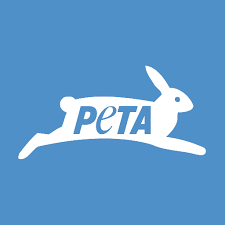

Environment
PETA International Science Consortium Wins Prize For Reducing Animal Use In Chemical Tests
The PETA International Science Consortium Ltd. will receive the prestigious LUSH Prize Training Award in London today. The award recognises the Science Consortium’s multifaceted approach to providing educational outreach to companies and regulators through the organisation of webinars, initiating face-to-face training sessions, and developing educational resources to promote the acceptance and uptake of non-animal methods for regulatory purposes.
To address the poor uptake of nonanimal methods under REACH – the European Union’s chemical program that is the largest animal testing plan in history – the Science Consortium organised a highly successful free webinar series to provide practical information on incorporating non-animal methods into testing strategies. Chemical Watch, the leading European regulatory news and information service for the chemical industry, co-hosted the series, which featured experts from the European Union Reference Laboratory for alternatives to animal testing, the European Commission, the European Chemicals Agency, the Institute for In Vitro Sciences, and other leading experts from industry and academia.
The webinars reached thousands of scientists, company representatives, and regulators when streamed live, with many more viewing the recordingsonline. Of those surveyed, 80% stated that they gained useful information on incorporating nontesting or nonanimal methods into a testing strategy, and 50% were more likely to use these methods for REACH.
Dr Gilly Stoddart, associate director of the PETA International Science Consortium, will be present at the international Lush Prize conference today and will accept the award and prize of £25,000 on the consortium’s behalf this evening. More information about the event is available here.
“Reports demonstrate that companies and regulators have not been doing all they can to ensure that testing on animals is conducted only as a last resort”, Stoddart says. “It is vital that regulators, company representatives and contractors be suitably trained on the vast array of nonanimal approaches that can be used to fulfil regulatory requirements, and the PETA International Science Consortium is filling that critical need”.
The Science Consortium regularly engages with the scientific community and, in the past year, initiated training on the use of in vitro methods for the US Environmental Protection Agency. Through its website, published journal articles, and by giving presentations at international conferences and workshops, the Science Consortium has provided consolidated guidance on ways to avoid animal testing. .
The Lush Prize is a collaboration between Lush and Ethical Consumer. Lush is a campaigning manufacturer and retailer of fresh handmade cosmetics and awards £250,000 each year to individuals and organisations working to end animal testing – the largest monetary award in the animal-free testing industry. Ethical Consumer is a research, publishing and campaigning co-operative based in Manchester, UK and manages the Prize on a day-to-day basis.
The PETA International Science Consortium Ltd. was established in 2012 to coordinate the scientific and regulatory expertise of its members – PETA Asia, PETA Australia, PETA France, PETA Germany, PETA India, PETA Netherlands, PETA UK, PETA US. The Science Consortium works to accelerate the development, validation, and global implementation of alternatives to testing on animals. The Consortium and its members promote and fund non-animal research with the aim of championing the best science and eliminating tests on animals.


 Features11 months ago
Features11 months agoEco-Friendly Cryptocurrencies: Sustainable Investment Choices

 Energy11 months ago
Energy11 months agoThe Growing Role of Solar Panels in Ireland’s Energy Future

 Energy10 months ago
Energy10 months agoGrowth of Solar Power in Dublin: A Sustainable Revolution

 Energy10 months ago
Energy10 months agoRenewable Energy Adoption Can Combat Climate Change




























